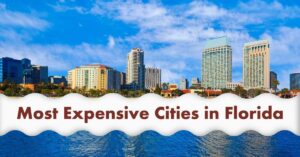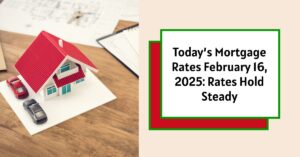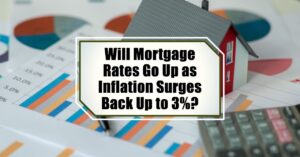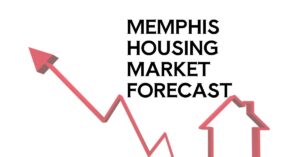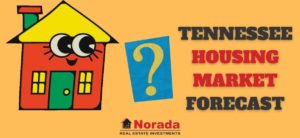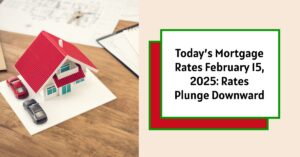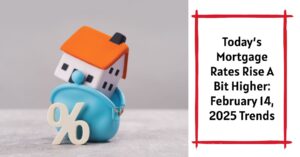If you're looking for a new place to call home in the Sunshine State, you might be wondering which are the best places to live in Florida for families. Florida is a diverse and beautiful state that offers something for everyone, from stunning beaches and natural parks to vibrant cities and cultural attractions.
However not all places in Florida are equally family-friendly, so you need to consider factors such as affordability, safety, education, health care, and recreation when choosing where to settle down with your loved ones. To help you with your decision, we've compiled a list of the best places to live in Florida for families, based on data from U.S. News & World Report, Wallethub, Marketwatch, and other sources. Here are our top picks:
10 Best Places to Live in Florida for Families (2025)
1. Sarasota
Sarasota is a coastal city on the Gulf of Mexico that ranks as the ninth-best place to live in the U.S. overall and the best place to live in Florida for families. Sarasota boasts a high quality of life, with a low crime rate, excellent health care, top-notch schools, and plenty of cultural and recreational opportunities.
Sarasota is also known for its arts scene, hosting festivals such as the Sarasota Film Festival and the Sarasota Music Festival. Families can enjoy the white-sand beaches of Siesta Key and Lido Key, the exotic animals at the Sarasota Jungle Gardens, and the exhibits at the Ringling Museum of Art.
2. Naples
Naples is another Gulf Coast city that offers a luxurious and relaxed lifestyle for families. Naples is one of the wealthiest cities in Florida, with a median home price of $387,630 and an average annual salary of $48,180.
Naples is also one of the safest cities in Florida, with a low violent crime rate and a high number of healthcare facilities per capita. Naples is famous for its golf courses, upscale shopping, fine dining, and pristine beaches. Families can also explore the nearby Everglades National Park, the Corkscrew Swamp Sanctuary, and the Naples Zoo.
3. Ponte Vedra Beach
Ponte Vedra Beach is a seaside community in northeastern Florida that ranks as the third best place to live in Florida for families. Ponte Vedra Beach has a high median household income of $105,579 and a low poverty rate of 4%. Ponte Vedra Beach also has excellent schools, with a high college readiness score and a low student-to-teacher ratio.
Ponte Vedra Beach is a popular destination for golf enthusiasts, as it hosts the PGA Tour's Players Championship every year. Families can also enjoy the miles of sandy beaches, the Guana Tolomato Matanzas National Estuarine Research Reserve, and the Ponte Vedra Concert Hall.
4. Port Saint Lucie
Port Saint Lucie is a city on the Atlantic coast that ranks as the fourth best place to live in Florida for families. Port Saint Lucie is one of the most affordable cities in Florida, with a median home price of $331,137 and an average annual salary of $43,100. Port Saint Lucie is also one of the fastest-growing cities in Florida, with a population increase of 14% from 2010 to 2020.
Port Saint Lucie is home to the New York Mets' spring training facility, the PGA Village golf complex, and the Port St. Lucie Botanical Gardens. Families can also visit the nearby Hutchinson Island, the Savannas Preserve State Park, and the St. Lucie County Aquarium.
5. Niceville
Niceville is a small town in northwestern Florida that ranks as the fifth best place to live in Florida for families. Niceville has a low cost of living, with a median home price of $247,112 and an average annual salary of $52,970. Niceville also has a low unemployment rate of 2.9% and a high job growth rate of 2%.
Niceville is located near the Eglin Air Force Base and has a strong military presence and community. Niceville is also close to the Choctawhatchee Bay and the Gulf of Mexico, offering plenty of water activities for families. Niceville hosts several events throughout the year, such as the Boggy Bayou Mullet Festival, the Thunderbird Intertribal Powwow, and the Niceville Christmas Parade.
6. Tampa
Tampa is a major city on the west coast of Florida that ranks as the fifth best place to live in Florida for families. Tampa has a population of about 3 million people and a median home price of $299,900. Tampa is a hub for business, education, culture, and entertainment, with a diverse and dynamic economy that offers many job opportunities for parents.
It also has a rich history, heritage, and arts scene, with museums, theaters, landmarks, and festivals that celebrate its multicultural roots. Tampa has many attractions for families, such as Busch Gardens, ZooTampa, the Florida Aquarium, and the Tampa Riverwalk. Tampa has good schools that rank above average for test scores, graduation rates, and college readiness. Tampa also has a moderate crime rate and a high quality of health care.
7. Pensacola
Pensacola is a historic city in the Florida Panhandle that ranks as the seventh best place to live in Florida for families. Pensacola has a population of about 487,000 people and a median home price of $219,900. Pensacola is known for its military and aviation heritage, as it is home to the Naval Air Station Pensacola, the National Naval Aviation Museum, and the Blue Angels flight demonstration team.
It also has some of the most beautiful beaches in the country, such as Pensacola Beach, Perdido Key, and Santa Rosa Island. Pensacola has good schools that rank above average for test scores, graduation rates, and college readiness. Pensacola also has a moderate crime rate and a high quality of health care.
8. Mount Dora
Mount Dora is a charming town in central Florida that ranks as the eighth best place to live in Florida for families. Mount Dora has a population of about 14,000 people and a median home price of $279,900. Mount Dora is known for its quaint historic downtown and its scenic location on Lake Dora.
It also hosts many events and festivals throughout the year that attract visitors and locals alike, such as the Mount Dora Arts Festival, the Mount Dora Craft Fair, the Mount Dora Music Festival, and the Mount Dora Christmas Lights. Mount Dora has great schools that rank among the top in the state and the nation for academic performance and college readiness. Mount Dora also has a low crime rate and a high quality of health care.
9. Lakeland
Lakeland is a city in central Florida that ranks as the ninth-best place to live in Florida for families. Lakeland has a population of about 659,000 people and a median home price of $331,137. Lakeland is conveniently located between Orlando and Tampa, giving residents easy access to both cities and their attractions. It also has its own charm and character, with a historic downtown, a vibrant arts and culture scene, and many lakes and parks for outdoor recreation. Lakeland has decent schools that rank average for test scores, graduation rates, and college readiness. Lakeland also has a moderate crime rate and a high quality of health care.
10. Cape Coral
Cape Coral is a city on the southwest coast of Florida that ranks as the tenth best place to live in Florida for families. Cape Coral has a population of about 200,000 people and a median home price of $279,900. Cape Coral is one of the fastest-growing cities in Florida and is ranked as the 12th best place to retire in the U.S. by Wallethub.
But Cape Coral is not just for seniors, it also offers a high quality of life for families, with a friendly and welcoming community, many entertainment and leisure options, and access to some of the best beaches and nature areas in the state. Cape Coral has good schools that rank above average for test scores, graduation rates, and college readiness. Cape Coral also has a low crime rate and a high quality of health care.
Recommended Read:
- Best Places to Live in Texas for Families in 2025
- 10 Best Places to Live in Texas for Young Adults in 2025
- 10 Best Places to Live in California for Families in 2025
- 15 Best Places to Live in the US in 2025
- 10 Best Places To Retire In South Carolina in 2025
- Best Places to Live in North Carolina for Families & Retirees
- 10 Best Places to Live in New Hampshire in 2025
- Best Places to Live in Mississippi for Families & Retirees
- Best Places to Retire in California
- Best Places to Live in Florida for Young Adults (2025)
- Best Places to Live in Florida for Retirees (2025)
- Best Places to Live in South Carolina for Families

